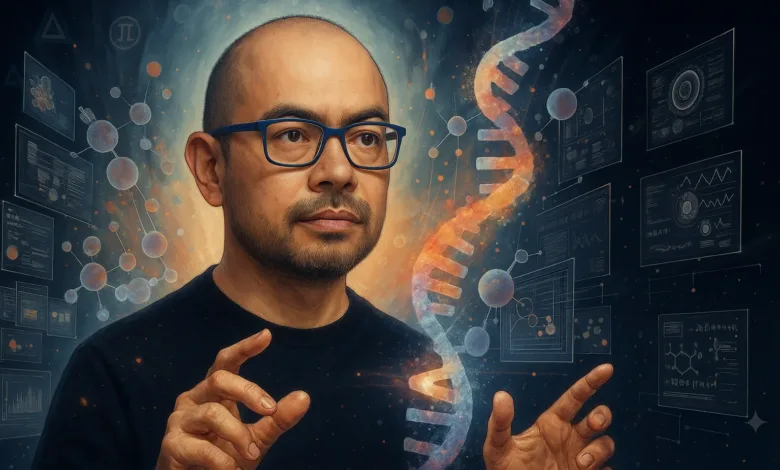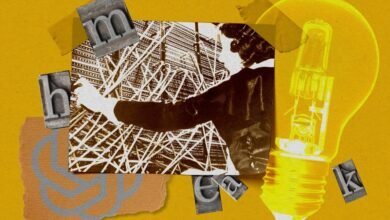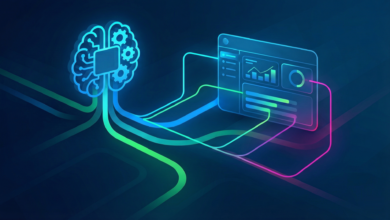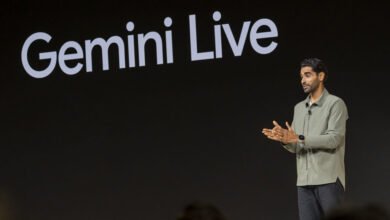Demis Hassabis and the New Logic of Discovery

▼ Summary
– Demis Hassabis and his Google DeepMind team won the 2024 Nobel Prize in Chemistry for AlphaFold, an AI that solved a 50-year-old protein structure puzzle.
– AlphaFold predicted the 3D shapes of over 200 million proteins, greatly accelerating drug discovery and medical research.
– His background includes being a chess master at age 13 and co-designing the video game Theme Park, which explored emergent behavior and complex systems.
– Hassabis holds a PhD in cognitive neuroscience, studying the hippocampus to understand human memory and intelligence, which informed DeepMind’s mission.
– He advocates for AI safety and focuses on using AI for scientific challenges, founding Isomorphic Labs for drug development and demonstrating AI’s potential beyond consumer products.
The Nobel Prize in Chemistry doesn’t typically go to computer scientists. But Demis Hassabis, the head of Google DeepMind, isn’t a typical computer scientist, and his work has implications far beyond code. He and his team won the 2024 prize for AlphaFold, a piece of artificial intelligence that solved one of biochemistry’s most frustrating 50-year-old puzzles, a mystery with massive implications for biology.
AlphaFold predicted the 3D shapes of over 200 million proteins. The achievement was like handing a complete atlas to biologists and researchers who had been trying to sketch a single continent. It’s a massive accelerator for drug discovery and medicine. To understand how a “computer guy” did this, you have to look at his unusual path.
The Strategist’s Mind
Long before AI, Hassabis was a master of strategy. At age 13, he was a chess master, ranked second in the world for his age. This provided deep training in complex, long-term planning.
He then took an unexpected turn and co-designed the 1994 video game Theme Park at age 17. The game became a cult classic, not because of its graphics, but for its early experiment in emergent behavior. Players built a park, yet the crowds and systems took on a life of their own. Hassabis was already fascinated with how simple rules could create complex, unpredictable intelligence.
Mapping the Source Code
After success in gaming, Hassabis went back to school, this time for a PhD in cognitive neuroscience. He wanted to understand the original intelligence: the human brain. His research focused on the hippocampus, the part of our brain responsible for memory and navigation. He studied how we remember the past and imagine the future, finding that the two processes are deeply linked.
His study of the brain was also a quest for its design principles. This fusion of chess strategy, game simulation, and neuroscience became the philosophical foundation for DeepMind, which he co-founded in 2010 with the mission to “solve intelligence.”
The DeepMind Chronicle
Google bought DeepMind in 2014, and the breakthroughs started making headlines.
First came AlphaGo in 2016. It beat the world’s best Go player, Lee Sedol, in a historic 4-1 match, not just with logic, but with a now-famous “creative” move that no human professional would have considered. Then AlphaZero learned to dominate chess, shogi, and Go from scratch, simply by playing against itself.
These games were more than victories; they proved that AI could develop insights beyond its human programmers. This all culminated in AlphaFold, the ultimate expression of his “science-led” approach: using AI to solve fundamental scientific problems, not just to build a better chatbot.
A Different Kind of Tech Leader
While much of the tech world is focused on the next consumer product, Hassabis directs his research at science. He’s since launched Isomorphic Labs, a sister company dedicated to using this AI for practical drug development.
This is why Hassabis matters. He represents a different path for artificial general intelligence. For audiences across the globe, his work shows a future where AI augments human scientists to tackle massive challenges in climate, health, and materials.
He also remains a prominent voice calling for AI safety and governance. He understands better than most that you can’t build a powerful new intelligence without also building guardrails.
Demis Hassabis operates with the methodical focus of a chess master and the deep curiosity of a neuroscientist. The Nobel Prize wasn’t an endpoint. It was validation that his life’s work, connecting games, brains, and code, is already changing how we discover the world.
Demis Hassabis
The Polymath’s Path




